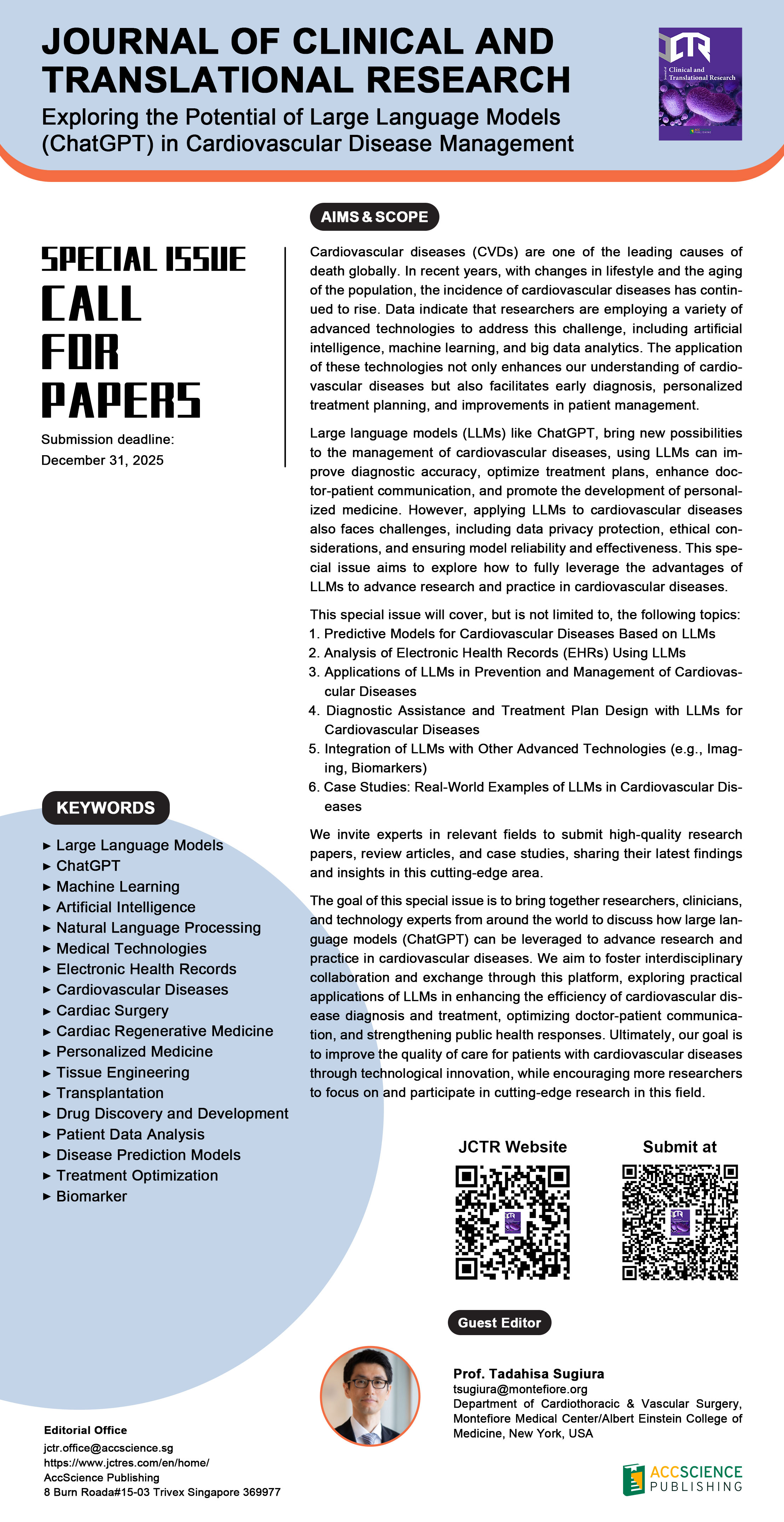
Department of Cardiothoracic & Vascular Surgery, Montefiore Medical Center/Albert Einstein College of Medicine, New York, USACardiac surgery; Cardiac regenerative therapy; Tissue engineering; Heart-lung transplantation; Mechanical circulatory support; Regenerative medicine; induced pluripotent stem cell

Cardiovascular diseases (CVDs) are one of the leading causes of death globally. In recent years, with changes in lifestyle and the aging of the population, the incidence of cardiovascular diseases has continued to rise. Data indicate that researchers are employing a variety of advanced technologies to address this challenge, including artificial intelligence, machine learning, and big data analytics. The application of these technologies not only enhances our understanding of cardiovascular diseases but also facilitates early diagnosis, personalized treatment planning, and improvements in patient management.
Large language models (LLMs) like ChatGPT, bring new possibilities to the management of cardiovascular diseases, using LLMs can improve diagnostic accuracy, optimize treatment plans, enhance doctor-patient communication, and promote the development of personalized medicine. However, applying LLMs to cardiovascular diseases also faces challenges, including data privacy protection, ethical considerations, and ensuring model reliability and effectiveness. This special issue aims to explore how to fully leverage the advantages of LLMs to advance research and practice in cardiovascular diseases.
This special issue will cover, but is not limited to, the following topics:
- Predictive Models for Cardiovascular Diseases Based on LLMs
- Analysis of Electronic Health Records (EHRs) Using LLMs
- Applications of LLMs in Prevention and Management of Cardiovascular Diseases
- Diagnostic Assistance and Treatment Plan Design with LLMs for Cardiovascular Diseases
- Integration of LLMs with Other Advanced Technologies (e.g., Imaging, Biomarkers)
- Case Studies: Real-World Examples of LLMs in Cardiovascular Diseases
We invite experts in relevant fields to submit high-quality research papers, review articles, and case studies, sharing their latest findings and insights in this cutting-edge area.
The goal of this special issue is to bring together researchers, clinicians, and technology experts from around the world to discuss how large language models (ChatGPT) can be leveraged to advance research and practice in cardiovascular diseases. We aim to foster interdisciplinary collaboration and exchange through this platform, exploring practical applications of LLMs in enhancing the efficiency of cardiovascular disease diagnosis and treatment, optimizing doctor-patient communication, and strengthening public health responses. Ultimately, our goal is to improve the quality of care for patients with cardiovascular diseases through technological innovation, while encouraging more researchers to focus on and participate in cutting-edge research in this field.
The role of large language models in induced pluripotent stem cell-derived cardiomyocytes research and clinical translation

